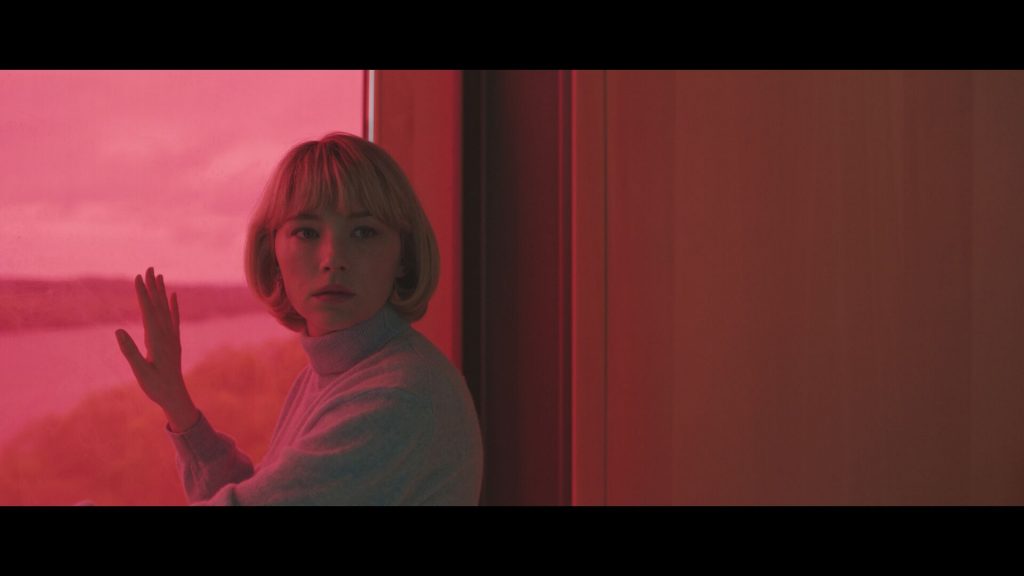May 4, 2019
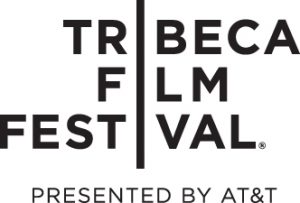
The following is a press release from the Tribeca Film Festival:
The 18th Annual Tribeca Film Festival, presented by AT&T, announced the winning filmmakers, storytellers, and actors in its competition categories at this year’s awards ceremony on May 2, 2019, at the Stella Artois Theatre at BMCC TPAC. The top honors went to Burning Cane for the Founders Award for Best U.S. Narrative Feature, House of Hummingbird (Beol-sae) for Best International Narrative Feature, and Scheme Birds for Best Documentary Feature. The Festival awarded $165,000 in cash prizes. The 2019 Tribeca Film Festival runs through May 5.
Rania Attieh won the Nora Ephron Award and a $25,000 prize for Initials S.G. (Iniciales S.G.). The award, created seven years ago, honors excellence in storytelling by a female writer or director embodying the spirit and boldness of the late filmmaker.
Tribeca honored innovation in storytelling with its Storyscapes Award, which went to The Key, created by Celine Tricart.
“I’m so proud to see our juries reward a group of winners that is truly representative of the diversity of story and accomplishment in craft at this year’s Festival. We are particularly excited for the many first-time filmmakers the jury chose to recognize, and feel like this year’s winners signal a bright future ahead for independent film,” said Festival Director Cara Cusumano.
Awards were given in the following feature film competition categories: Founders Award for Best Narrative, International Narrative, Documentary, New Narrative Director, The Albert Maysles New Documentary Director, and the Nora Ephron Award, honoring a woman writer or director. Short films were honored in the Narrative, Documentary, Student Visionary and Animation categories.
This year’s Festival included 113 feature-length films, 63 short films, and 33 immersive storytelling projects representing 44 countries.
Screenings of the award-winning films will take place throughout the final day of the Festival: Sunday, May 5, at various venues. Specific times and ticketing information are available at www.tribecafilm.com/festival.
The winners of the Audience Awards, powered by AT&T, which are determined by audience votes throughout the Festival via the Festival app, were announced on May 4.
In addition to cash awards and in-kind services provided by sponsors including AT&T, Bulleit Frontier Whiskey, CHANEL, CNN Films, and PwC, a number of the winners were presented with original pieces of art created by contemporary artists: Jane Dickson, Shepard Fairey, Stephen Hannock, JR, Eddie Kang, Jeff Koons, Walter Robinson, Amy Sillman, Swoon, and Fred Tomaselli.
The winners, awards, and comments from the jury who selected the recipients are as follows:
U.S. NARRATIVE COMPETITION CATEGORIES
The jurors for the 2019 U.S. Narrative Competition were Lucy Alibar, Jonathan Ames, Cory Hardrict, Dana Harris, and Jenny Lumet.
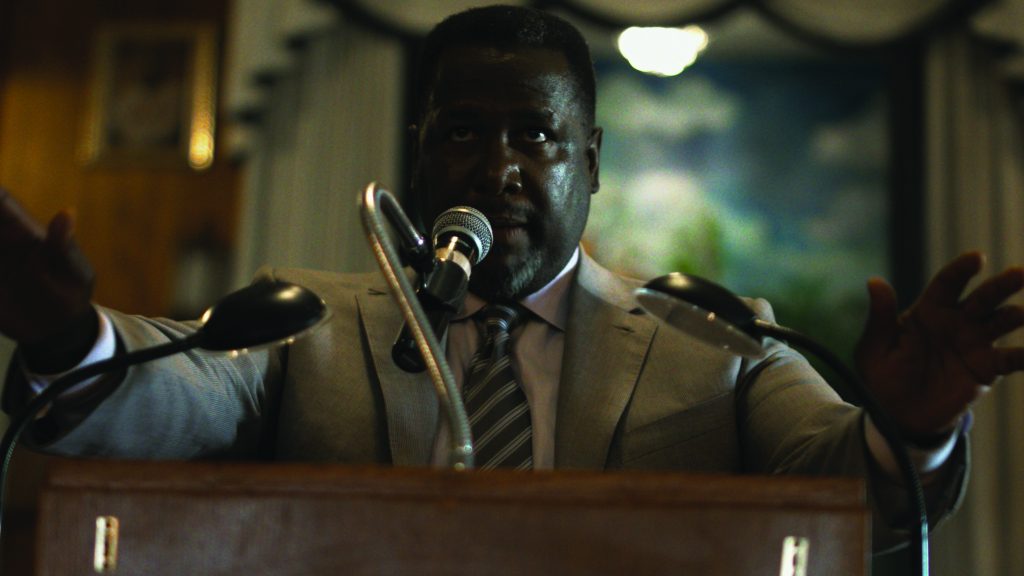
Founders Award for Best Narrative Feature – Burning Cane, directed by Phillip Youmans. The winner receives $20,000, sponsored by AT&T, and the art award “Bloom” by Fred Tomaselli. The award was given by Robert De Niro and Jane Rosenthal on behalf of the jury. Jury comment: “The Founders Award goes to a voice that is searingly original. One of the jurors compared this filmmaker’s unique voice to a latter day Faulkner, Welty, Williams. We loved this filmmaker’s vision and we love this filmmaker’s inevitable brilliant future. We are honored to present this award to Phillip Youmans for Burning Cane.”
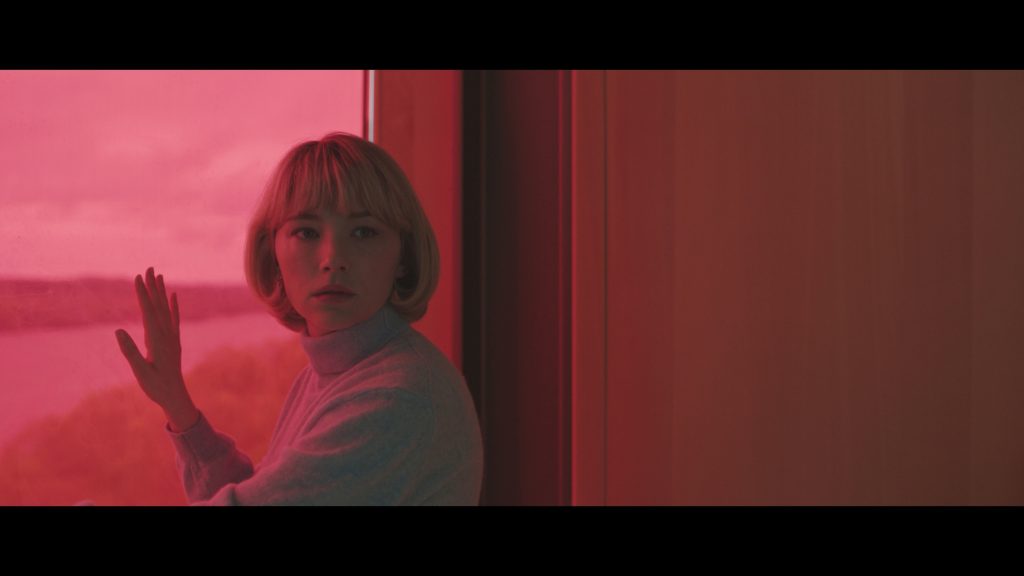
Best Actress in a U.S. Narrative Feature Film – Haley Bennett in Swallow. Jury comment: “For a sensitive, engaging performance the best actress award goes to Haley Bennett for Swallow.”
- Jury special mention: “For her always surprising and deeply engaging work in Stray Dolls, Geetanjali Thapi.

Best Actor in a U.S. Narrative Feature Film – Wendell Pierce in Burning Cane. Jury comment: “For his portrayal of a troubled, passionate Preacher the best actor award goes to Wendell Pierce in Burning Cane.”
Best Cinematography in a U.S. Narrative Feature Film – Phillip Youmans for Burning Cane. Jury comment: “The cinematography was bold and swung for the fences, the award goes to Phillip Youmans for Burning Cane.”
- Special Jury mention: “For work that took us to the icy coasts and sweltering kitchens of rural Maine, Todd Banhazl for Blow the Man Down.”

Best Screenplay in a U.S. Narrative Feature Film – Bridget Savage Cole and Danielle Krudy for Blow the Man Down. The winner receives $2,500. Jury comment: “For a stylized, thrilling story of secrets, Bridget Savage Cole and Danielle Krudy for Blow the Man Down.”
- Special jury mention: “To a story of a woman finding her biological family and her logical family on the highway, Ani Simon-Kennedy for The Short History of the Long Road.”
INTERNATIONAL NARRATIVE COMPETITION CATEGORIES
The jurors for the 2019 International Narrative Competition were Gbenga Akinnagbe, Angela Bassett, Baltasar Kormákur,Rebecca Miller, and Steve Zaillian.
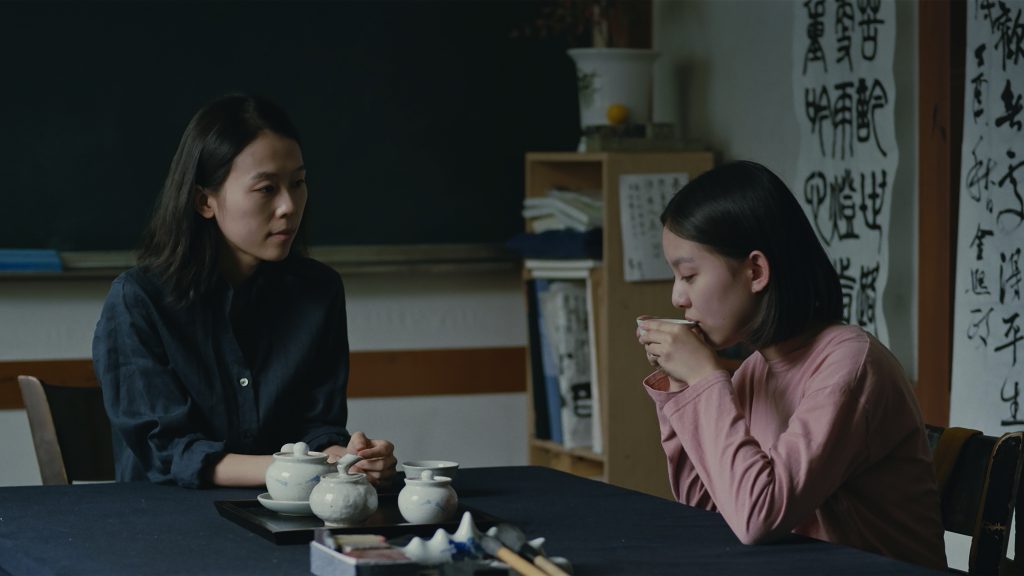
Best International Narrative Feature – House of Hummingbird (Beol-sae) (South Korea, USA) directed and written by Bora Kim.The winner receives $20,000 and the art award “Easter” by Eddie Kang. Jury comment: “In this beautiful film, a seemingly un-exceptional girl is truly seen by another human being for the first time. Through that random connection, her perspective of herself, and hence her life, is transformed. The award for Best International Narrative Feature goes to Bora Kim for House of Hummingbird.
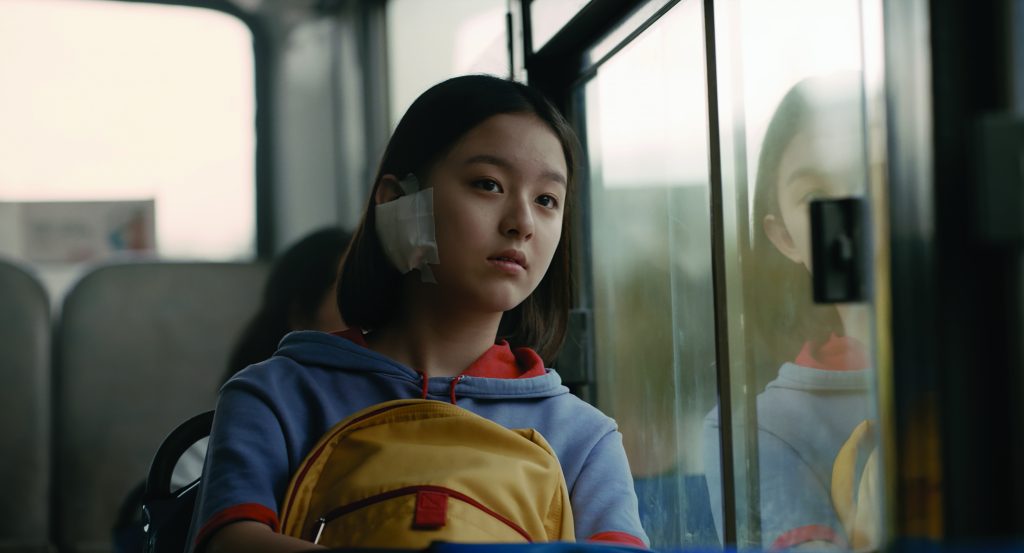
Best Actress in an International Narrative Feature Film – Ji-hu Park in House of Hummingbird (Beol-sae) (South Korea, USA). Jury comment: “For a subtle performance of enormous range and complexity, the award for Best Actress in an International Narrative Feature goes to Ji-hu Park in House of Hummingbird.
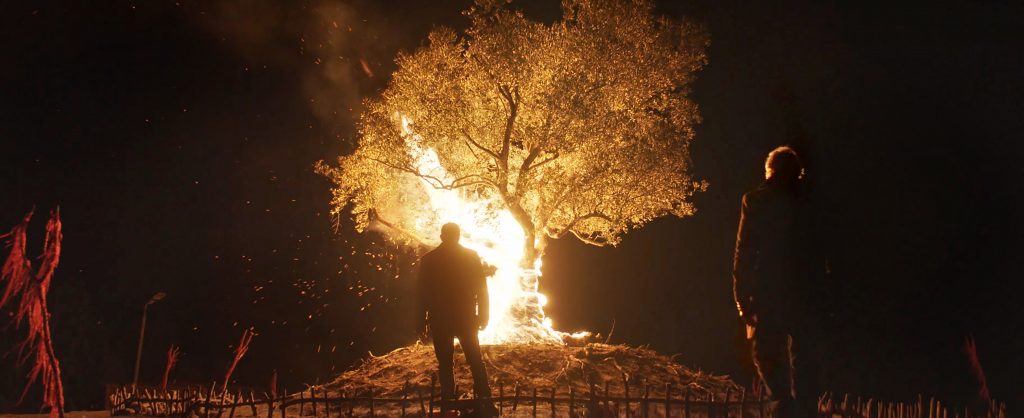
Best Actor in an International Narrative Feature Film – Ali Atay in Noah Land. Jury comment: “For an emotionally powerful and truthful portrayal of a conflicted and self-destructive man struggling to make sense of his life, the award for Best Actor in an International Narrative Feature goes to Ali Atay in Noah Land.”
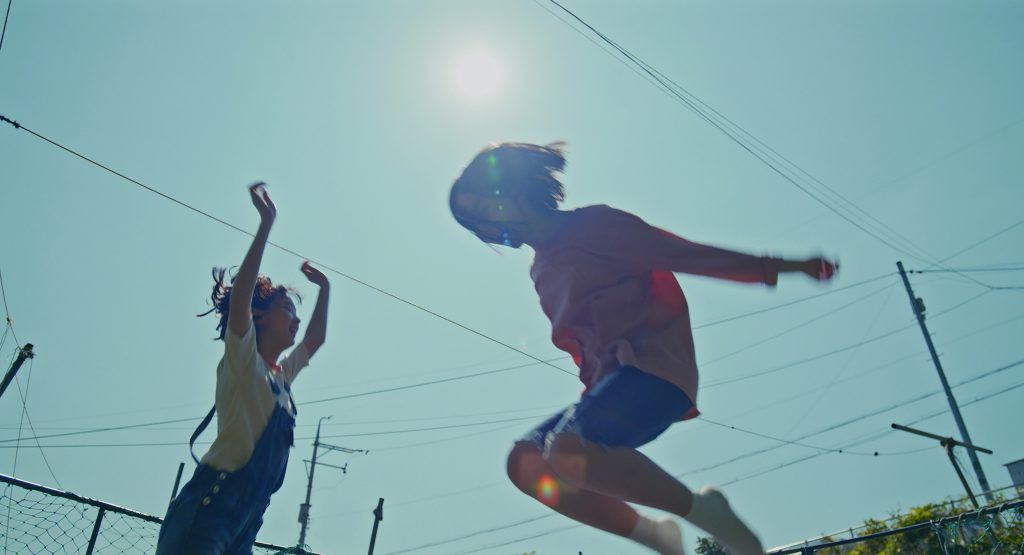
Best Cinematography in an International Narrative Feature Film – Cinematography by Kang Gook-hyun for House of Hummingbird (Beol-sae) (South Korea, USA) directed by Bora Kim. Jury comment: “For empathetic, patient, yet specific and assured cinematography which allows us to embark on a young girl’s journey as she comes to terms with who she truly is, the award for Best Cinematography in an international narrative feature goes to Gook-hyun Kang for House of Hummingbird.”
Best Screenplay in an International Narrative Feature Film – Noah Land (Nuh Tepesi) written by Cenk Ertürk (Germany, Turkey, USA). The winner receives $2,500. Jury comment: “For its perceptive and nuanced storytelling of an estranged father and son struggling to understand the past, each other and themselves, the award for Best Screenplay in an International Narrative Feature goes to Cenk Ertürk for Noah Land.
DOCUMENTARY COMPETITION CATEGORIES
The jurors for the 2019 Documentary Competition were Drake Doremus, Robert Greene, Julie Goldman, Andrew LaVallee, and Cheryl McDonough.
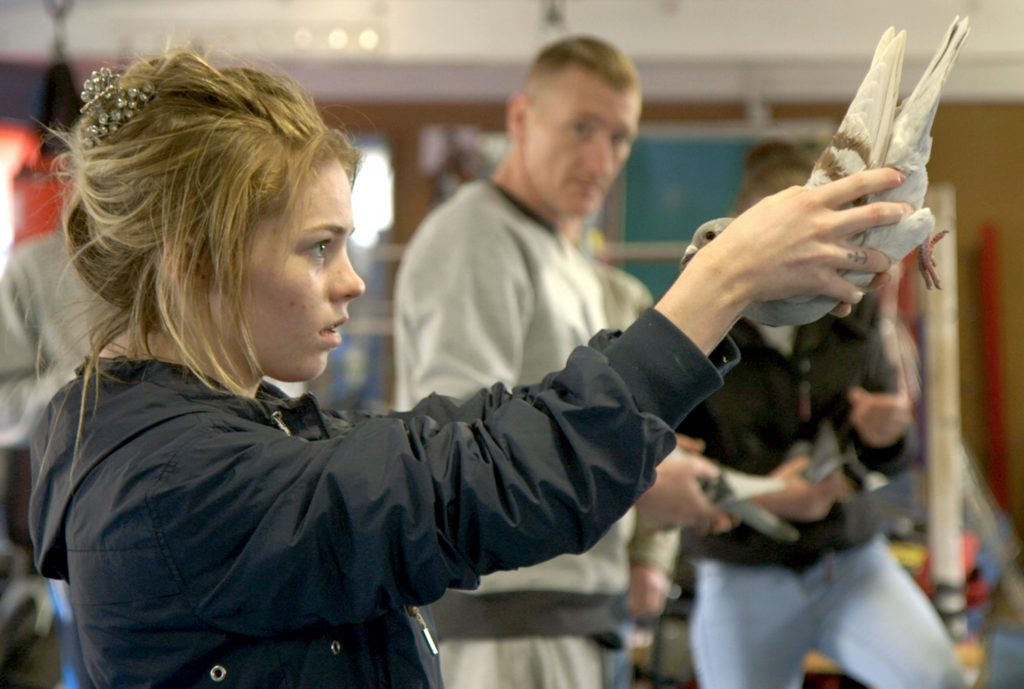
Best Documentary Feature – Scheme Birds (Scotland, Sweden) directed and written by Ellen Fiske, Ellinor Hallin. The winner receives $20,000, and the art award “Oil Lotus Woman” by Shepard Fairey. Jury Comment: “For its poetic, haunting depiction of compelling characters living on the edge. Every element of the film, from editing to cinematography to point of view, is superb. The filmmakers convey their voice in a unique and present-tense way. We’re proud to present the award for best documentary feature to Scheme Birds.”

Best Cinematography in a Documentary Film – Cinematography by Yang Sun, Shuang Liang for Our Time Machine (China) directed by Yang Sun, S. Leo Chiang. The winner receives $2,500. Jury comment: “For its insightful visual style that captures loss and uses both intimate and grand spaces to maximum effect. The images elevated a universal story to the realm of dream and metaphor. The award for best cinematography goes to Our Time Machine.
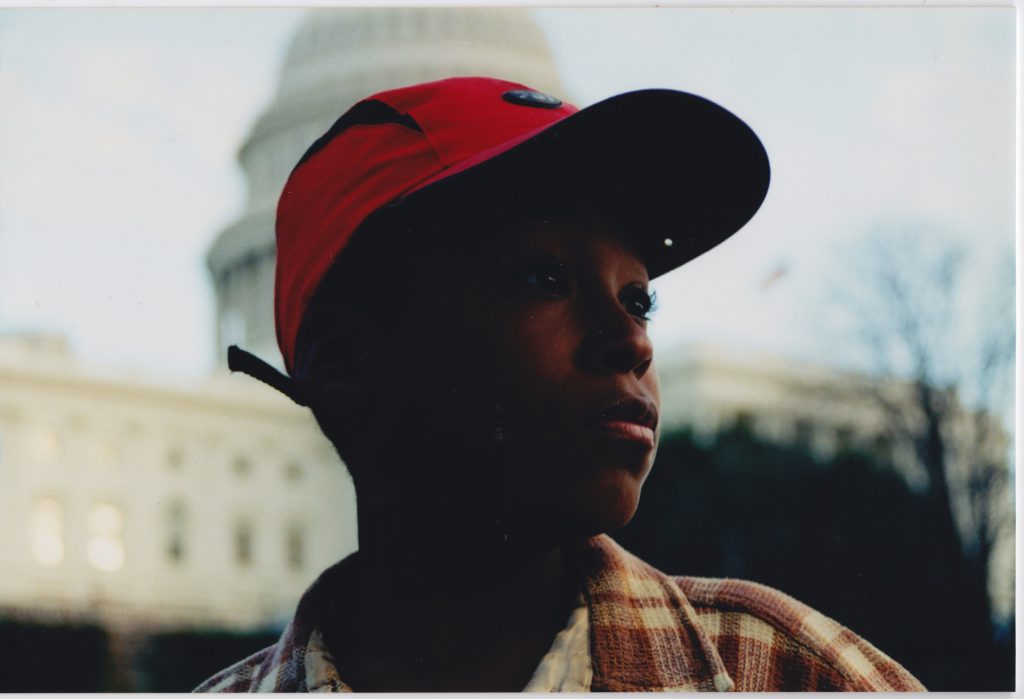
Best Editing in a Documentary Film – Editing by Jennifer Tiexiera for 17 Blocks (USA) directed by Davy Rothbart. The winner receives $2,500. Jury comment: “The award for best editing goes to a film for its profound treatment of vast amounts of honest, often raw footage. The film is structured in a way that renders some of the most affecting moments with great subtlety. Viewers are transformed over the course of the film, a testament to the choices made in its making. The award for best editing goes to 17 Blocks.”
- Special Jury mention: “This brave film uses editing to reveal narrative layers that weren’t immediately apparent, challenging and surprising viewers along the way. The special jury mention goes to Rewind.”
BEST NEW NARRATIVE DIRECTOR COMPETITION
The jurors for the 2019 Best New Narrative Director Competition were Stephen Kay, Bill Keith, Justin Long, Piper Perabo, and Mélita Toscan du Plantier.

Best New Narrative Director – The Gasoline Thieves (Huachicolero) (Mexico, Spain, UK, USA) directed by Edgar Nito. The winner receives $10,000, and the art award “Love Trap” by Walter Robinson. Jury comment: “A coming of age story, social commentary, and at some points a revenge tale, this new director juggles each genre with equal sensitivity and truth. The film is impressively shot, with the messy and complicated inner workings of the characters’ situations reflected in the emotional camera work that has a blazing intensity. Like the movie’s central character, this movie is defined more by its heart than its swagger. We present the Best New Narrative Director award to Edgar Nito for The Gasoline Thieves. We can’t wait to see more from Edgar.”
BEST NEW DOCUMENTARY DIRECTOR COMPETITION
The jurors for the 2019 Albert Maysles New Documentary Director Award were David Cross, Orlando von Einsiedel, and Kathrine Narducci.

Albert Maysles New Documentary Director Award – Scheme Birds (Scotland, Sweden) directed by Ellen Fiske and Ellinor Hallin. The winner receives $10,000 sponsored by CNN Films, and the art award “Indigo Rocket Over Tribeca” by Stephen Hannock. Jury comment: “For a film that tells a deeply compelling story, but realised with cinematic vision and invited us intimately into the lives of the film’s characters. This film is a remarkable achievement, made even more so because it’s from first time feature directors. The winners for the Albert Maysles Award for Best New Documentary Director are Ellen Fiske and Ellinor Hallin for Scheme Birds.”
THE NORA EPHRON AWARD
The jurors for the 2019 Nora Ephron Award, presented by CHANEL, were Debra Messing, Chloë Sevigny, and DeWanda Wise.
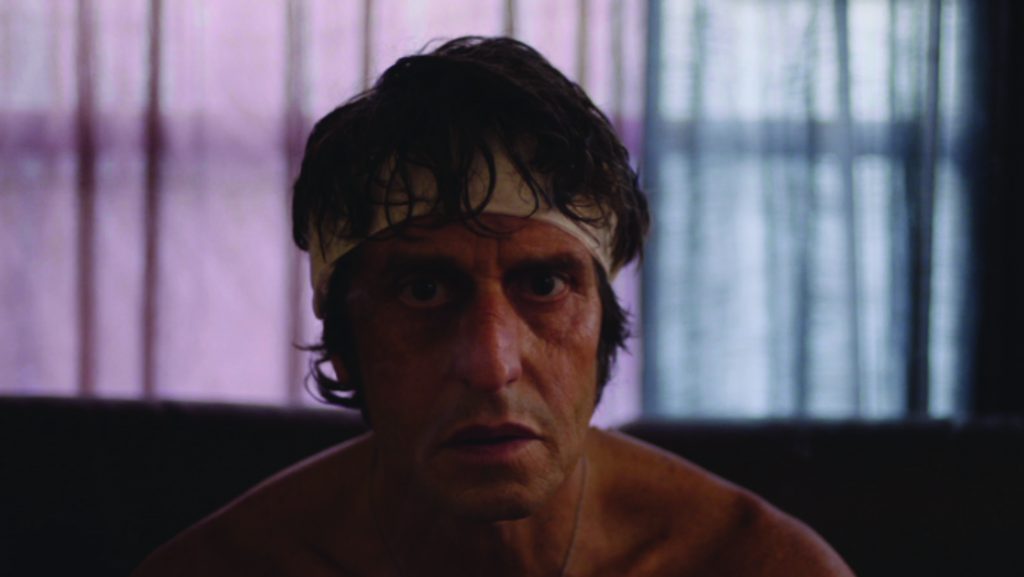
The Nora Ephron Award – Rania Attieh for Initials S.G. (Iniciales S.G.) (Argentina, Lebanon, USA) directed by Rania Attieh, Daniel Garcia. Rania receives $25,000, sponsored by CHANEL, and the art award “Alison the Lacemaker” by Swoon. Jury comments: “The film we chose is thrilling, distinct, and fully immersive. It was also something we’d never seen before. A true cinematic experience. We are elated to award this years’ Nora Ephron Award to Rania Attieh for Initials S.G.”
SHORT FILM COMPETITION CATEGORIES
The jurors for the 2019 Narrative Short Competition and Animated sections were Maureen Dowd, Topher Grace, Rosalind Lichter, Hamish Linklater, Lily Rabe, Phoebe Robinson, and Jeff Scher.
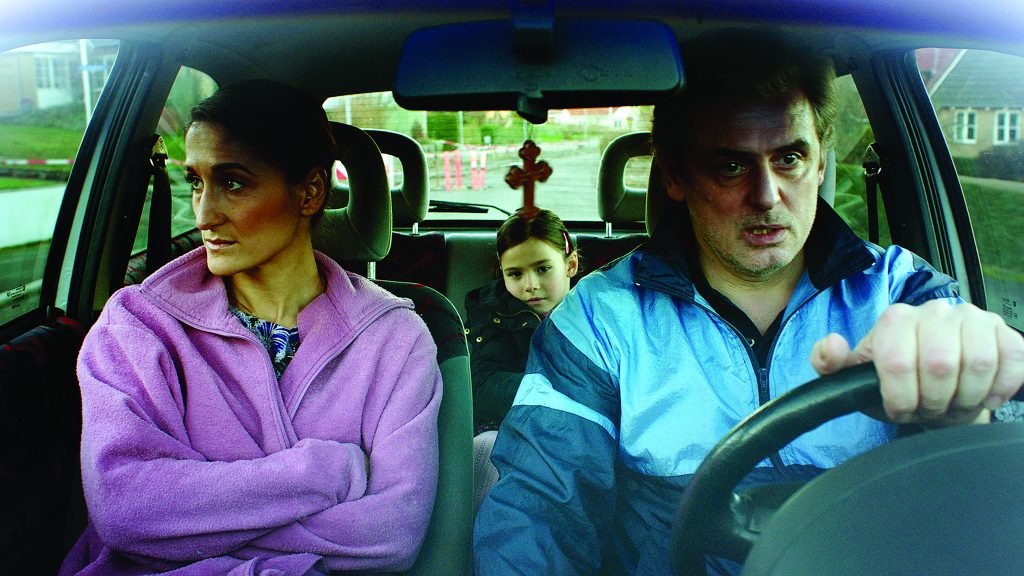
Best Narrative Short – Maja (Denmark) directed by Marijana Jankovic. The winner receives $5,000 sponsored by Bulleit Frontier Whiskey, and the art award “Amy Sillman” by Amy Sillman. Jury comment: “A deftly told story of a misunderstood young immigrant girl on her first day at a new school rides a line of danger and yearning innocence, challenging our assumptions and twisting the personal into the political with a grace our moment requires.”
- Special Jury Mention: “This film celebrates the humanity and ingenuity of a character from the margins of society on a propulsive, fast-pedaling quest for the best tortilla in New York, The Dishwasher directed and written by Nick Hartanto, Sam Roden.”
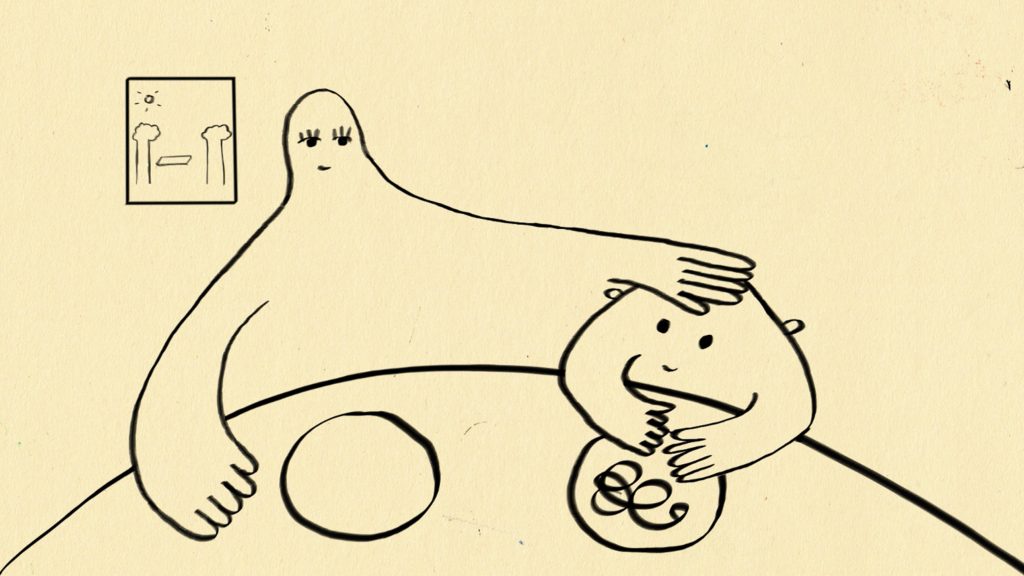
Shorts Animation Award – My Mother’s Eyes (UK) directed and written by Jenny Wright. The winner receives $5,000 sponsored by Bulleit Frontier Whiskey, and the art award “Balloon Dog, Magneta” by Jeff Koons. Jury comment: “For its delicate, elegantly simple, breathtakingly imaginative animation and its ability to hold the heart of anyone who has a mother — whether beating in grief or in celebration. To this indelible portrait of immeasurable love, we are thrilled to give this award to My Mother’s Eyes.
The jurors for the 2019 Short Documentary and Student Visionary Competitions were Dr. Kevin Cahill, David Krumholtz, Kathy Najimy, Sheila Nevins, Agunda Okeyo, Aaron Rodgers, and Buster Scher.

Best Documentary Short –Learning to Skateboard in a Warzone (If You’re a Girl (UK) directed by Carol Dysinger. The winner receives $5,000 sponsored by Bulleit Frontier Whiskey, and the art award “28 Millimeters, Portrait of a Generation” by JR. Jury comment: “A revelatory tale of how skateboarding can fuel the future of dignified resistance to gender oppression in war torn Afghanistan. Told through the Innocent confessions of young girls and the steadfast dedication of their headstrong female instructors, this film shines an uncompromising and ultimately uplifting light onto righting injustice.”
- Special Jury Mention: “An unflinching and delicate portrait of a loving father with a haunted past who bravely decides to stand up to the powers that be in Ferguson, Missouri in St. Louis Superman.”

Student Visionary Award – Jebel Banat (Egypt) directed and written by Sharine Atif. The winner receives $5,000 sponsored by Bulleit Frontier Whiskey, and the art award “Chrysler Building” by Jane Dickson. Jury comment: “This tale of gendered oppression and aspirant liberation paints a searing portrait of life in the Egyptian countryside. Two inseparable young women are tested on their commitment to local mores despite their growing fear of losing themselves and each other.”
- Special Jury mention: “Set in rural China, this stunningly cinematic short Pearl (Zhen Zhu) follows the strife of a small family down a path of rupture and loss.”
STORYSCAPES AWARD
The 2019 Storyscapes Award, presented by AT&T, which recognizes groundbreaking approaches in storytelling and technology, jurors were Lisa Osborne, Paul Smalera, and Adaora Udoji.

Storyscapes Award – The Key (USA, Iraq), created by Celine Tricart. The winner receives $10,000, presented by AT&T. Jury comment: “This piece was the full package. Emotionally resonant, the winner demonstrates a seamless fusion of technology and narrative. The experience combines a real actor with fantastical, immersive visuals and achieves a rarity in VR storytelling with its use of metaphor to represent an ongoing, real-world crisis. Of particular note are the superbly executed virtual reality technical details, including character design, use of color, and sound design.”
TRIBECA X AWARD
Previously awarded last week were the 2019 Tribeca X Awards, sponsored by PwC. Tribeca X recognizes excellence in storytelling at the intersection of advertising and entertainment. The jurors were Nabil Elderkin, Kim Gehrig, Jason Kreher, Kinjil Mathur,Patrick Milling-Smith, and John Osborn.
Feature
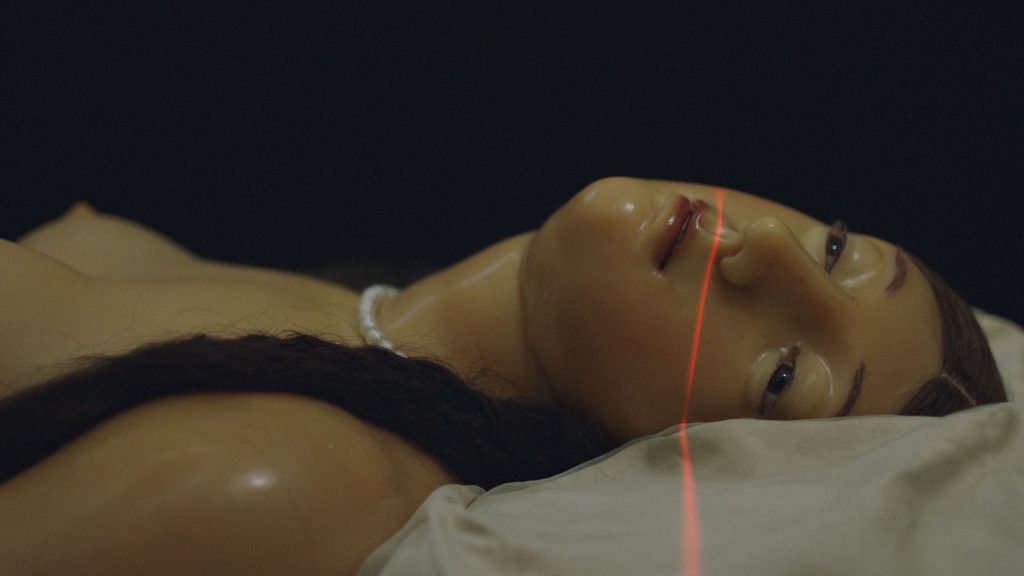
The winner of the Best Feature Film was awarded to Almost Human for The Carlsberg Foundation. Directed by Jeppe Rønde.
Short
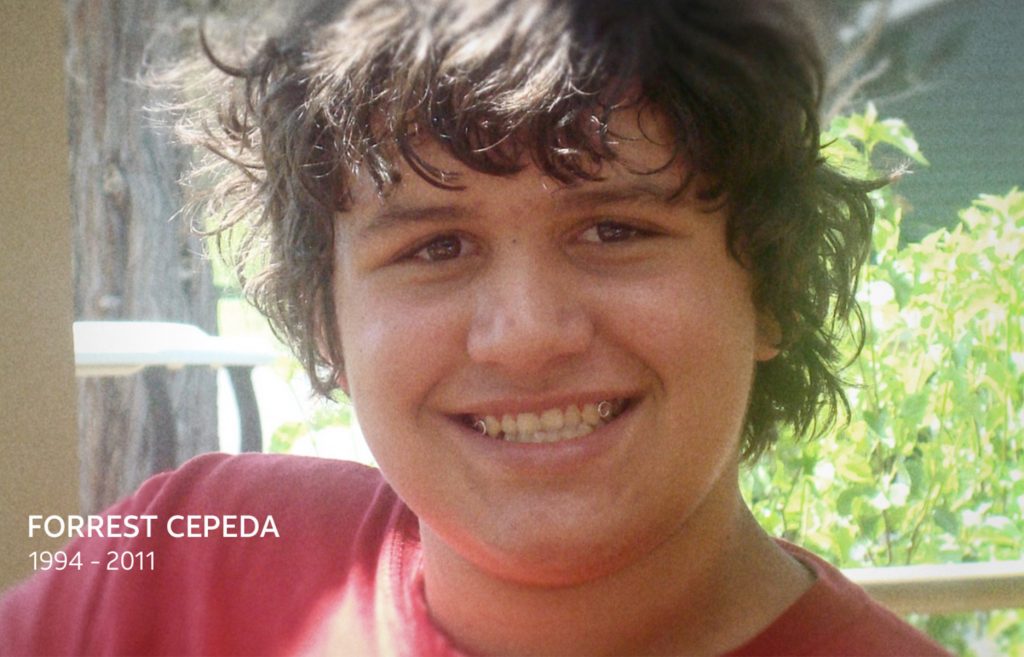
The winner of the Best Short Film was awarded to The Face of Distracted Driving for AT&T. Directed by Errol Morris for BBDO New York.
Episodic

The winner of the Best Episodic Film was awarded to History of Memory for HP. Directed by Sarah Klein and Tom Mason for Redglass Pictures, The Garage by HP.
VR

The winner of the Best VR Film was awarded to The 100% by Stand Up to Cancer, HP and Intel. Directed by Hernan Barangan for Springbok Entertainment.
AUDIENCE AWARDS WINNERS

In addition, the festival announced the winners of the Audience Awards: the audience choice for Best Narrative Feature and Best Documentary Feature films, sponsored by AT&T. Plus One, written and directed by Jeff Chan and Andrew Rhymer, was honored with the Narrative Audience Award and Gay Chorus Deep South, directed by David Charles Rodrigues, was given the Documentary Audience Award. The winner of each received a cash prize of $10,000.
“These stories are crowd pleasers and united audiences at the Festival,” said Tribeca EVP Paula Weinstein. “Our audiences laughed their way through the screenings of the romantic comedy Plus One lead by Maya Erskine and Jack Quaid and were moved by Gay Chorus Deep South, a timely story that uses music to unite communities around LGBTQ+ rights. We were honored to world premiere these films and know audiences elsewhere will love them as much as ours did at Tribeca.”
“So many of the people who worked on Plus One met in New York, and bringing the film back to this city has been an overwhelmingly emotional experience,” said directors Jeff Chan and Andrew Rhymer. “We are over the moon excited by the audience response to our film and can’t wait to share it with the rest of the world when it releases on June 14th!”
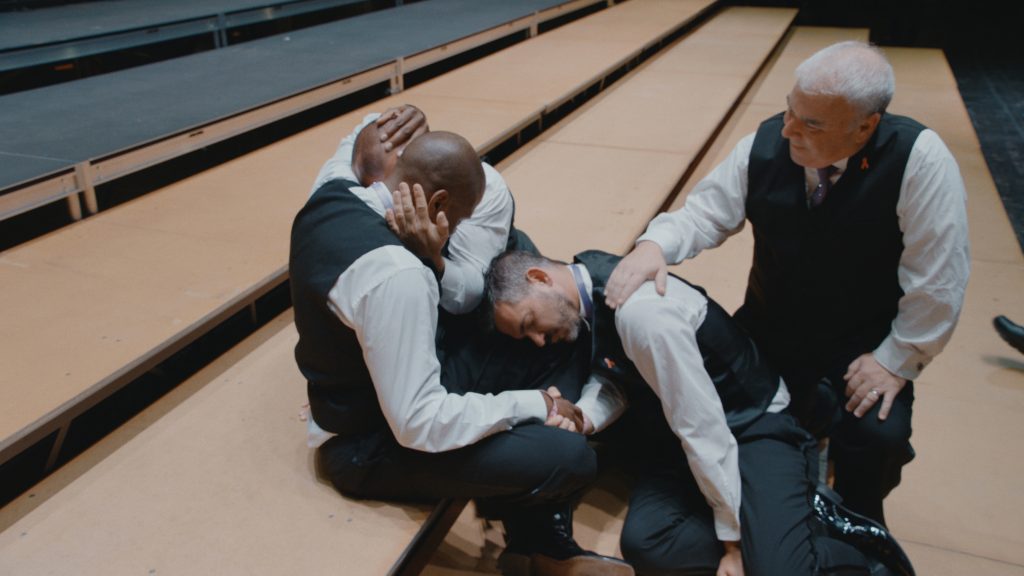
“The entire reason we made this film was to bring this message of belonging of the LGBTQ community and all other communities that are considered “the other” to as many people as possible in the world and the Audience Award at Tribeca is the ultimate celebration of exactly this,” said David Charles Rodrigues. “We are honored and humbled by this award. Thank you Tribeca from the bottom of our hearts.”
The runners-up were See You Yesterday, directed by Stefon Bristol, for the Narrative Audience Award and Watson, directed by Lesley Chilcott, for the Documentary Audience Award. Throughout the Festival, which kicked off on April 24, audience members voted by using the official Tribeca Film Festival app on their mobile devices and rated the film they had just viewed from 1-5 stars. Films in the U.S. Narrative Competition, International Narrative Competition, Documentary Competition, Viewpoints, Narrative Spotlight, Narrative Documentary, Movies Plus, Midnight, This Used to Be New York, and Tribeca Critics’ Week sections were eligible.
Audience Award winners and runners-up will screen Sunday, May 5 at Regal Cinema Battery Park Theater along with the winners selected by the Tribeca Film Festival Jury, which were announced on May 2.
- Plus One: 2:45 PM & 9:00 PM
- See You Yesterday: 5:45 PM
- Gay Chorus Deep South: 12:15 PM & 6:00 PM
- Watson: 3:00 PM & 9:45 PM
For more information on all of the 2019 Tribeca Film Festival films and programming, please visit tribecafilm.com/festival
BACKGROUND INFORMATION ON PROJECTS RECEIVING HONORS
U.S. NARRATIVE COMPETITION WINNERS
Blow the Man Down, directed and written by Danielle Krudy, Bridget Savage Cole. Produced by Drew Houpt, Alex Scharfman, Tim Headington, Lia Buman. (USA) – World Premiere. While grieving for the loss of their mother, the Connolly Sisters suddenly find they have a crime to cover up, leading them deep into the underbelly of their salty Maine fishing village. With Morgan Saylor, Sophie Lowe, Margo Martindale, June Squibb, Annette O’Toole, Marceline Hugot.
Burning Cane, directed and written by Phillip Youmans. Produced by Wendell Pierce, Mose Mayer, Ojo Akinlana, Karen Kaia Livers, Cassandra Youmans, Phillip Youmans. (USA) – World Premiere. Set among the cane fields of rural Louisiana, Burning Canefollows a deeply religious mother struggling to reconcile her convictions of faith with the love she has for her troubled son. With Wendell Pierce, Karen Kaia Livers, Dominique McClellan, Braelyn Kelly.
Swallow, directed and written by Carlo Mirabella-Davis. Produced by Mollye Asher, Mynette Louie, Carole Baraton, Frederic Fiore. (USA) – World Premiere. Hunter, a newly pregnant housewife, finds herself increasingly compelled to consume dangerous objects. As her husband and his family tighten their control over her life, she must confront the dark secret behind her new obsession. With Haley Bennett, Austin Stowell, Elizabeth Marvel, David Rasche and Denis O’Hare.
INTERNATIONAL NARRATIVE COMPETITION WINNERS
House of Hummingbird (Beol-sae), directed and written by Bora Kim. Produced by Zoe Sua Cho, Bora Kim. (South Korea, USA) – North American Premiere. In 1994 Seoul, quiet eighth-grader Eunhee spends her time consumed by love and friendship, shoplifting, and karaoke. But it’s in her new teacher that Eunhee finds the unlikely connection that she has been desperately seeking in this touching coming-of-age drama. With Ji-hu Park, Saebyuk Kim, Seungyeon Lee, Ingi Jeong.
Noah Land (Nuh Tepesi), directed and written by Cenk Ertürk. Produced by Alp Ertürk, Sevki Tuna Ertürk, Cenk Ertürk. (Germany, Turkey, USA) – World Premiere. A son strives to honor his terminally ill father’s last wish to be buried under a tree he planted as a child, but clashes with villagers who claim the tree is in fact a holy relic planted by Noah after the Great Flood. With Ali Atay, Haluk Bilginer, Arin Kusaksizoglu, Mehmet Ozgur, Hande Dogandemir.
DOCUMENTARY COMPETITION WINNERS:
17 Blocks, directed by Davy Rothbart, written by Jennifer Tiexiera. Produced by Alex Turtletaub, Michael B. Clark, Marc Turtletaub, Rachel Dengiz, Davy Rothbart. (USA) – World Premiere. Using two decades of intimate home video, 17 Blocks tells the story of the Sanford family, whose struggles with addiction and gun violence eventually lead to a journey of love, loss, and acceptance.
Our Time Machine, directed by Yang Sun, S. Leo Chiang, written by S. Leo Chiang, Bob Lee. Produced by S. Leo Chiang, Yang Sun. (China) – World Premiere. Conceptual artist and puppeteer Ma Liang begins work on an ambitious performance piece about time and memory. For collaboration, he turns to his father, a former director of the Shanghai Chinese Opera, who is beginning to lose his own memories. TFI Supported.
Scheme Birds, directed and written by Ellen Fiske, Ellinor Hallin. Produced by Mario Adamson, Ruth Reid. (Scotland, Sweden) – World Premiere. As her childhood turns into motherhood, teenage troublemaker Gemma comes of age in her fading Scottish steel town. But in a place where “you either get knocked up or locked up,” innocent games can easily turn into serious crime.
BEST NEW NARRATIVE DIRECTOR WINNER
The Gasoline Thieves (Huachicolero), directed by Edgar Nito, written by Alfredo Mendoza, Edgar Nito. Produced by Victor Leycegui, Annick Mahnert, Joshua Sobel. (Mexico, Spain, UK, USA) – World Premiere. Propelled by a need for cash to impress a crush, 14-year-old Mexican farmhand Lalo finds himself dangerously in over his head after entering into the country’s underworld of illegal gasoline extraction. With Eduardo Banda, Pedro Joaquin, Regina Reynoso, Fernando Becerril, Pascacio López, Leonardo Alonso.
BEST NEW DOCUMENTARY DIRECTOR WINNER:
Scheme Birds, directed and written by Ellen Fiske, Ellinor Hallin. Produced by Mario Adamson, Ruth Reid. (Scotland, Sweden) – World Premiere. As her childhood turns into motherhood, teenage troublemaker Gemma comes of age in her fading Scottish steel town. But in a place where “you either get knocked up or locked up,” innocent games can easily turn into serious crime.
THE NORA EPHRON AWARD
Initials S.G. (Iniciales S.G.), directed and written by Rania Attieh, Daniel Garcia. Produced by Ivan Eibuszyc, Shruti Ganguly, Georges Schoucair. (Argentina, Lebanon, USA) – World Premiere. An aging Argentine Serge Gainsbourg wannabe struggles with a career he can’t seem to get on track, an affair he doesn’t want, and a crime he didn’t mean to commit. With Diego Peretti, Julianne Nicholson, Daniel Fanego, Malena Sanchez, Francisco Lumerman.
SHORT FILM COMPETITION CATEGORIES:
Jebel Banat, directed and written by Sharine Atif. (Egypt) – North American Premiere, Short Narrative. Two Bedouin sisters hide on a mountain, escaping forced marriages and embarking on a journey of freedom. With Sara Soumaya Abed, Jala Hesham, Soliman El Jebaly. In Arabic with English subtitles.
Learning to Skateboard In a Warzone (If You’re A Girl), directed by Carol Dysinger. (UK) – World Premiere, Short Documentary. Learning To Skateboard In A Warzone (If You’re A Girl) is the story of young Afghan girls learning to read, write—and skateboard—in Kabul. In Dari with English subtitles.
Maja, directed by Marijana Jankovic, written by Marijana Jankovic, Adam August. (Denmark) – New York Premiere, Short Narrative. Maja, a six-year-old Serbian girl, has a difficult time interacting with the other kids—and she ends up being misunderstood and lonesome. With Selena Marsenic, Jesper Christensen, Dejan Cukic, Marijana Jankovic. In Danish, Serbian with English subtitles.
My Mother’s Eyes, directed and written by Jenny Wright. (UK) – New York Premiere. My Mother’s Eyes is a story about motherhood and loss in the abstracted world of childhood memory.
STORYSCAPES AWARD
The Key (World Premiere) – USA, Iraq
Project Creator: Celine Tricart
Key Collaborators: Gloria Bradbury
An interactive VR experience taking the viewer on a journey through memories. Will they be able to unlock the mystery behind the mysterious Key without sacrificing too much?
TRIBECA X AWARD
X Best Feature
Almost Human
Notes on the human condition by 10 scientist and a robot. Stephen Fry narrates Jeppe Rønde’s visionary science essay, where the artistic ambitions have intergalactic dimensions.
Director: Jeppe Rønde
Brand: The Carlsberg Foundation
X Best Short Film
The Face of Distracted Driving – Forrest
Tells the story of Forrest Cepeda, a 16-year-old boy who was killed in a distracted driving accident.
Director: Errol Morris
Brand: AT&T
Agency: BBDO New York
X Best Episodic
History of Memory
From Florida to India, Beijing to New Orleans, History of Memory is a documentary series about people whose lives were forever altered by the discovery, creation, or preservation of one photograph.
Director: Sarah Klein, Tom Mason
Brand: HP
Agency: Redglass Pictures, the Garage by HP
X Best VR
The 100%
An immersive experience following the harrowing and inspirational journey of Maggie Kurdirka, a ballet dancer and rising star at the Joffrey Concert Group, who at 23 years old was diagnosed with incurable stage four metastatic breast cancer.
Director: Hernan Barangan
Brand: Stand Up To Cancer, HP
Agency: Springbok Entertainment
ABOUT THE AUDIENCE AWARD WINNING FILMS AND RUNNERS-UP
WINNERS:
Gay Chorus Deep South, directed by David Charles Rodrigues, written by David Charles Rodrigues, Jeff Gilbert. Produced by Bud Johnston, Jesse Moss. (USA) – World Premiere, Feature Documentary. To confront a resurgence of anti-LGBTQ laws, the San Francisco Gay Men’s Chorus embarks on an unprecedented bus tour through the Deep South, celebrating music, challenging intolerance, and confronting their own dark coming out stories. With The San Francisco Gay Men’s Chorus, Oakland Interfaith Gospel Choir, Dr. Tim Seelig, Ashlé, Jimmy White
- The film played in the Movies Plus section.
Plus One, directed and written by Jeff Chan, Andrew Rhymer. Produced by Jeremy Reitz, Debbie Liebling, Ross Putman, Jeff Chan, Andrew Rhymer, Greg Beauchamp. (USA) – World Premiere. In order to survive a summer of wedding fever, longtime single friends Ben and Alice agree to be each other’s plus one at every goddamn wedding they’re invited to. With Maya Erskine, Jack Quaid, Ed Begley Jr., Rosalind Chao, Beck Bennett, Finn Wittrock.
- The Film played in the Spotlight Narrative section.
RUNNERS UP:
See You Yesterday, directed by Stefon Bristol, written by Stefon Bristol & Fredrica Bailey. Produced by Spike Lee, Jason Sokoloff, Matt Myers. (USA) – World Premiere, Feature Narrative. Two Brooklyn teenage prodigies, C.J. Walker and Sebastian Thomas, build make-shift time machines to save C.J.’s brother, Calvin, from being wrongfully killed by a police officer.
- The film played in the Viewpoints section.
Watson, directed by Lesley Chilcott. Producers: Louise Runge, Lesley Chilcott, Wolfgang Knöpfler. . (USA, Costa Rica, Tonga) – World Premiere. Co-founder of Greenpeace and founder of Sea Shepherd, Captain Paul Watson has spent 40 years fighting to end the destruction of the ocean’s wildlife and its habitat. Part pirate, part philosopher, Watson’s methods stop at nothing to protect what lies beneath.
- The film played in the Documentary Competition section.
# # #
About the Tribeca Film Festival:
The Tribeca Film Festival, presented by AT&T, brings visionaries and diverse audiences together to celebrate storytelling in all its forms, including film, TV, VR, gaming, music, and online work. With strong roots in independent film, Tribeca is a platform for creative expression and immersive entertainment. The Festival champions emerging and established voices; discovers award-winning filmmakers and creators; curates innovative experiences; and introduces new technology and ideas through premieres, exhibitions, talks, and live performances.
The Festival was founded by Robert De Niro, Jane Rosenthal, and Craig Hatkoff in 2001 to spur the economic and cultural revitalization of lower Manhattan following the attacks on the World Trade Center. Now in its 18th year, the Festival has evolved into a destination for creativity that reimagines the cinematic experience and explores how art can unite communities. The 18th annual edition will take place April 24 – May 5, 2019.

